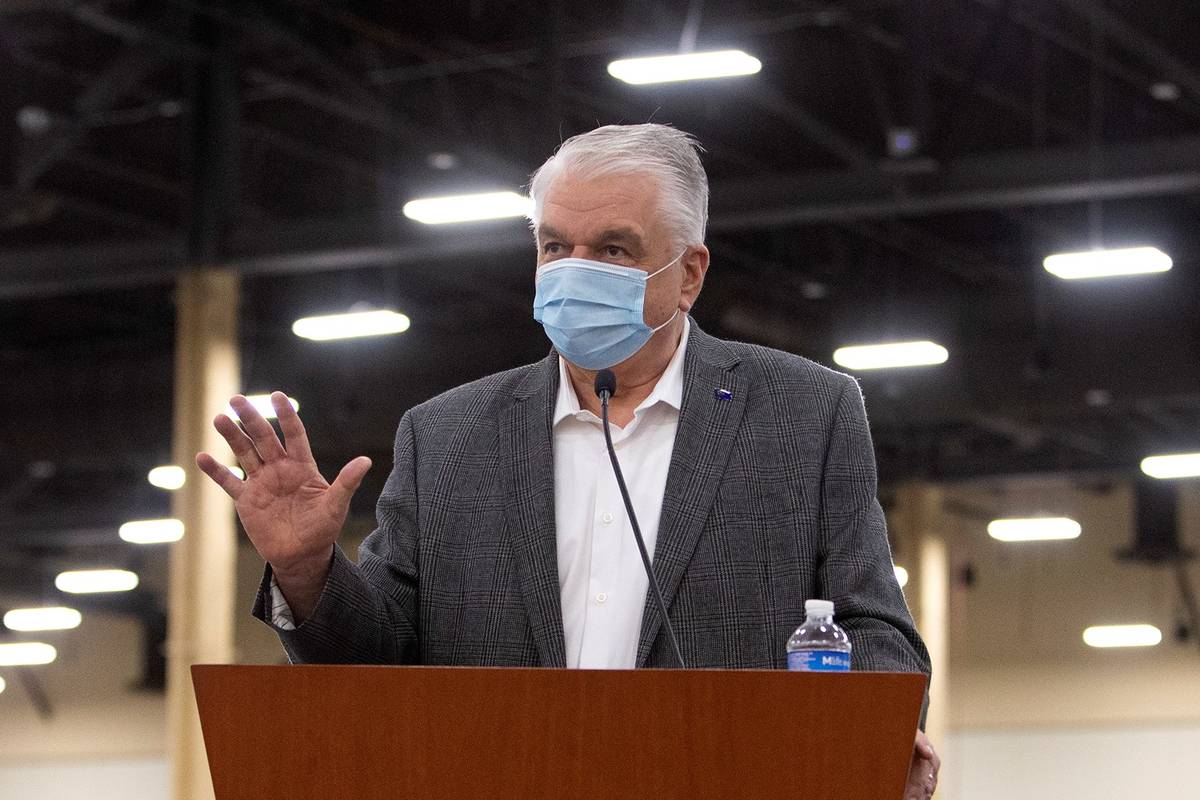Sisolak promotes infrastructure bank, new jobs
CARSON CITY – With one of his key economic development proposals before the Legislature reduced to a study, Gov. Steve Sisolak appeared before a Senate committee Monday in support of another, lobbying for a bill that would open up a state infrastructure fund to cover projects ranging from affordable housing to rural broadband access and renewable energy.
The state Infrastructure Bank was created by the Legislature in 2017 but has not been funded. The governor, in his January state of the state address, proposed a $75 million infusion for the bank through a bond.
Senate Bill 430, heard by the Senate Growth and Infrastructure committee Monday, would let the state use those funds to kickstart a wide array of projects, including health care access, transportation, utilities, water and wastewater, recycling and sustainability, food insecurity and public education.
The state monies could leverage other funding, including federal pandemic recovery aid, to launch some $200 million in new infrastructure investment by the end of the year, with the potential to create 16,000 construction jobs by the end of 2023, the governor told the committee.
“Launching the state’s infrastructure bank will play a major role in helping to immediately create pathways for good-paying jobs in Nevada, while helping to build projects for communities who need it,” the governor told the committee before turning over the bill presentation to State Treasurer Zach Conine. “We know that our state needs better roads, better schools, more affordable housing, and more sustainable forms of energy.”
Conine called the measure “one of the largest jobs bills in the history of Nevada,” and said expanding the scope of projects covered by the infrastructure fund could “put more people to work more quickly and put much needed investment into communities that have been traditionally left behind.”
The bill drew mostly clarifying questions from committee members on its scope and only supportive public testimony from business and construction groups, public education and tribal organizations, all of which could benefit from the expanded list of projects and their economic impact. It will come back to the committee for a later vote.
Contact Capital Bureau reporter Bill Dentzer at bdentzer@reviewjournal.com. Follow @DentzerNews on Twitter.



















